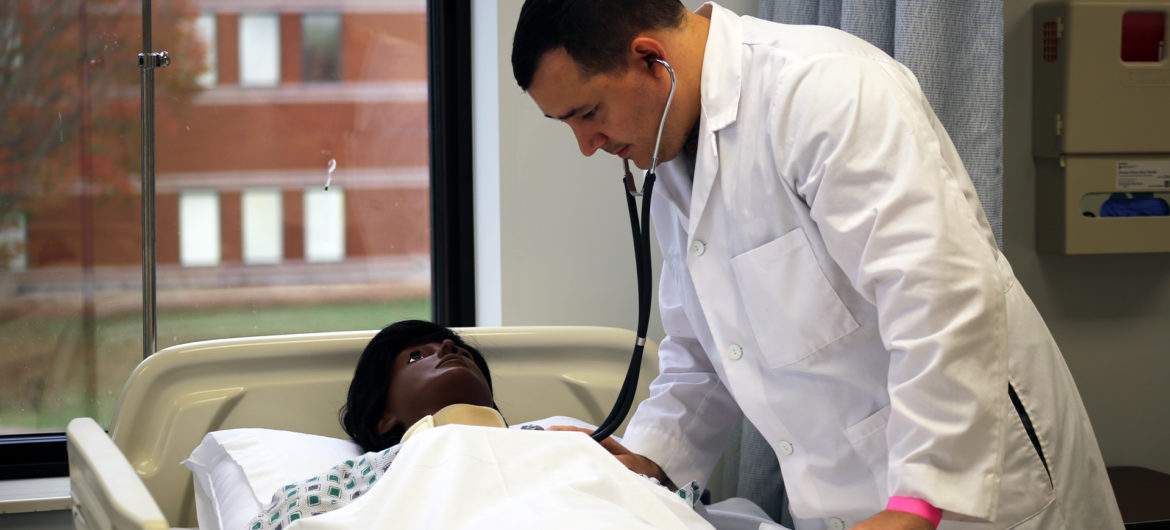MARIETTA, OHIO—Washington State College of Ohio (WSCO) is celebrating adult learners throughout the month of November. As part of the month-long celebration, Washington State announced numerous initiatives underway to make college more accessible to adults and help them advance their skills or pursue a new career by starting, or finishing, a college certificate or degree.
“By reaching more adults, we are able to fortify the workforce with graduates who have the necessary skills for the in-demand jobs of today and the future,” said Director of Workforce Development and Partnerships Gary Barber.
Barber said that as industries change and labor markets shift, workers need additional and more specialized skills to stay competitive, while others are looking for retraining that will allow them to start new careers. “The jobs are out there,” said Barber. “With the current state of the economy, there’s really never been a better time to come back to college, upskill, and get an occupation that offers more than a livable wage.”
Yet even with positive career outlooks, it can be difficult for adults to go back to school. Adult learners, defined as students who are 25 or older, have different personal and professional demands on their time. Nearly 60-percent of adult learners work while in college while 26-percent are parents. “Our adult students need flexibility as they juggle work, school, and family obligations,” said Vice President of Institutional Advancement Amanda Herb. “They want to earn a degree but need to do so in a way that fits their lifestyles. That’s why we’re doing even more to make WSCO an easy choice for adults by offering flexible scheduling options and streamlined support services,” said Herb.
After the state-wide shift from quarters to semesters in 2012, the college saw an uptick in traditional and College Credit Plus (CCP) students. As a result, the college has worked on building greater flexibility – something much needed by adults. Changes include the two-day-a-week model used in the nursing program Education Advancement to Registered Nurse (EARN) pathway, which lets students attend school two days and have the remainder of the week to work. Accelerated, 8-week terms allow students to select two or three classes each term, rather than the traditional five to six, to make schedules easier to balance with a student’s other obligations. The college has also started to explore Saturday course options for those who work during the week or have school-aged children. These changes complement a robust mix of online and blended courses as well as fully online programs offered by the college.
In addition to course flexibility, the college has recently finished streamlining enrollment processes and support services. With the grand opening of its new centralized location for admissions, financial aid, records, and the business office, called the Student OneStop, students work closely with one individual throughout their entire enrollment process. This makes it easy for busy adults to get the answers they need in one location. “Our new Student OneStop is designed to take the stress out of enrollment and ultimately strengthen student success by providing incoming students with a single point of contact throughout the enrollment process,” said Herb.
Once enrolled in courses, students benefit from numerous support services offered by the college’s Center for Student Success (CSS), located across from the OneStop in the Library building. These include free tutoring, transfer assistance, mentoring, mental health counseling, and career services.
Earlier this fall, the college also announced the decision to remove the placement testing requirement for general admission. “Moving away from required placement testing makes it easier for students to enroll and alleviates any anxiety they might have about testing,” said Herb. “We were chartered 50 years ago specifically to serve adults in the Mid-Ohio Valley. We know how to meet them where they are and use our excellent workforce partnerships to take them where they need to go. We hope that through these efforts we can inspire more adults to reach for their dreams and pursue higher education.”
Registration for spring semester is now open. For more information about programs and how to get started, visit wscc.edu/admissions or call 740.568.1900.





